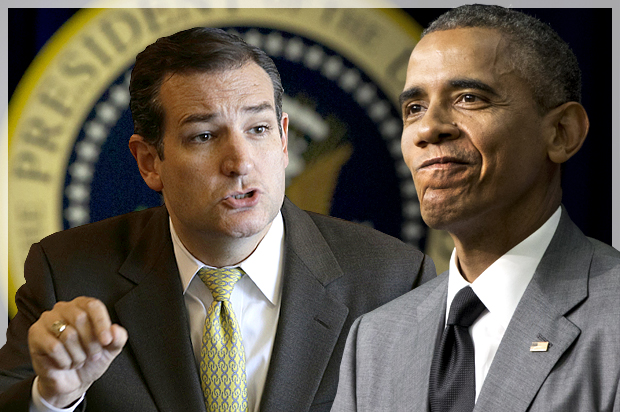By: Rachel Brooks | Republic Underground

In the photo above, taken on May 11, 2021, Israeli sirens wail in the night as bombs meet in the air. Hamas has launched hundreds of missiles at Israeli civilian targets.
With the terrorist movement Hamas launching major missile attacks against Israel beginning on May 10, 2021, Republic Underground sought the opinion of some of the world’s leading Middle East experts on the conflict and its ramifications. In this second in a series of these interviews, Republic Underground managing editor Rachel Brooks spoke on May 11 with Michael Johns, co-founder of the influential U.S. Tea Party movement who has served previously as a White House speechwriter, Heritage Foundation foreign policy analyst, and influential U.S. expert and strategist on national security, foreign policy, and other public policy matters.
Michael Johns
Michael Johns launched the influential U.S. Tea Party movement in 2009. Its extensive national political victories in 2010 and 2014 proved immensely politically consequential, blocking Obama’s progressive legislative agenda for the last six years of his two-term presidency. The Tea Party has proven globally consequential, inspiring Britain’s Brexit campaign and other populist political movements in Europe and globally.
Johns’ immense influence on public policy has been a constant in Washington, D.C. since the 1980s when, as a Heritage Foundation foreign policy analyst during the Reagan administration, he helped lead the development and implementation of the Reagan Doctrine that provided military support to anti-communist resistance movements in Afghanistan, Angola, Cambodia, Nicaragua, and other communist regimes in the Soviet orbit. These efforts have since been credited widely as a major contributing factor to the U.S. victory in the Cold War in 1991.
Johns visited nearly all of these Reagan Doctrine war zones during the Cold War’s final years, proving influential as both a strategic counselor to the leaders of these resistance movements fighting Soviet-backed communist regimes, aiding the U.S. government in navigating complex geostrategic challenges associated with the doctrine and ultimately making a persuasive case for the doctrine’s global implementation.
Johns also was one of the earliest and leading proponents of Reagan’s contention that, in the Soviet Union, the U.S. and western democracies faced a nuclear-armed enemy that was both fundamentally evil and an imminent national security threat to the nation. This proved helpful as Johns and others argued that the U.S. needed to abandon the constraints associated with long-standing post-World War II containment policies developed by George Kennan and others and embrace a vastly more ambitious goal of actually winning the Cold War, a goal the Reagan administration ultimately adopted and achieved.
Following the Cold War’s end, Johns moved to the International Republican Institute, where he developed the Institute’s U.S. government-sponsored programs to support and promote the emergence of post-Cold War democratic institutions to replace formerly totalitarian and non-democratic ones globally. In the Middle East and North Africa region, Johns developed and led U.S. government-sponsored programs that developed and strengthened democratic institutions and women’s rights initiatives. He also had served as a senior aide to a Republican governor and U.S. Senator. As a senior aide to former New Jersey Governor Thomas Kean, he helped Kean develop foreign policy positions and affiliations that led to his 2002 appointment as chair of the influential 9/11 Commission following al-Qaeda’s September 11 attacks.
But in 2009, as Johns helped bring the Tea Party movement to national and global prominence, Johns emerged as one of the first conservatives to articulate the need for significant reforms in traditional U.S. national security and foreign policies to meet new global challenges. He criticized the multi-decade war in Iraq and the process of nation-building that was central to that war. While not criticizing former President George W. Bush personally, he blamed U.S. intelligence agencies both for largely failing to act on signs of an emerging al-Qaeda threat and later in their misrepresentation of intelligence assessments on Iraq’s nuclear weapons capabilities, which justified the invasion and occupation that ultimately took over 4,000 American lives and opened the door for both Iran and ISIS to rise as regional forces in post-Saddam Iraq. He also criticized what he saw as a fairly systematic mismanagement of a multi-billion dollar U.S. foreign aid budget, which he said needed more connectivity to vital U.S. interests and was lacking the performance metrics and oversight to measure where this aid was and was not proving effective.
He was among the first U.S. foreign policy experts to argue that China’s Communist Party (CCP), not Putin’s Russia, was the principal 21st-century threat to American security and global leadership and was one of the first such experts to call for decisive U.S. action in response to China’s genocidal treatment of its Muslim Uyghur population in Xinjiang. In June 2015, Johns was nearly alone among prominent conservatives in publicly endorsing Trump on the first day of his candidacy and quickly emerged as one of the most persuasive advocates for his candidacy and policy agenda, including securing the U.S. border with Mexico, ending the overstayed foreign visa crisis, urging European and Asian allies to share more generously in the cost of various regional defense operations, and in arguing that the multi-decade U.S. troop presence in the Middle East had become both excessively costly and that nation-building in Afghanistan and Iraq was distracting from the more urgent need of confronting the emerging China military threat and eradicating ISIS.
He also began criticizing NAFTA and other global trade policies, including China’s illegal trade practices, that he argued were proving harmful to the U.S. manufacturing sector and to blue-collar jobs. He has been one of the most prominent national critics of the Joint Commission Plan of Action (JCPA), the Paris Agreement, and other global agreements that he believes were beneficial to foreign nations but much less commonly to the U.S. and that the United Nations had veered from its original 1945 mission in ways that were politicizing and diluting the global body’s mission and effectiveness. In Middle East policy, he has supported moving the U.S. embassy in Israel to Jerusalem and strengthening relationships with Israel and moderate Arab nations, both of which he argued were necessary to restrain the Iran regime’s regional expansion and terrorism.
Johns was born and grew up in the manufacturing-intensive region of Pennsylvania’s Lehigh Valley. He holds an economics degree from the University of Miami, where he graduated with honors and has also studied at Cambridge University in the United Kingdom. He has traveled extensively through Africa, Asia, Latin America, the Middle East and North Africa, and the former Soviet Union, written on U.S. foreign policy for The Wall Street Journal, The Christian Science Monitor, National Review and other major media, and appears regularly as a commentator on public policy issues for U.S. and global television and radio networks.
Michael Johns interview
Question: You have been a leading proponent of Israel’s security and have criticized Hamas and other regional terrorist movements that you have argued were gearing up for intensified attacks against Israel. That’s now clearly happening. While the terrorists are ultimately responsible for terrorism, do you see U.S. policy being responsible in any way?
Johns: “It’s an indisputable fact that Trump’s Middle East policies of 2017 through 2021 were almost universally successful while Biden’s, in just over 100 days, are proving almost universal failures. In these few weeks, Biden has alienated Israel, undermined what was a gradually improving relationship with Saudi Arabia, sent all the wrong policy messages on the Islamic regime in Iran, unjustifiably reversed the proper designation of the Iran-backed Houthis in Yemen as a foreign terrorist organization, and now left Israel to fight off probably the most significant Hamas attack on it ever. In four years, Trump and Mike Pompeo worked on some of the hardest and most complex foreign policy issues confronting us and made progress on just about each one of them. Conversely, in just a few short weeks, Biden has reversed these largely successful policies and now has American interests very much on defense in the Middle East and elsewhere.
“Obama also holds immense responsibility for Hamas’ deadly terrorist undertakings. Iran is giving Hamas about $30 million a month in military and other aid, which has given Hamas the resources necessary to launch attacks of this magnitude against Israel. But that $30 million a month is available to Hamas almost exclusively because Obama released over $150 billion to the terror-supporting mullahs as part of the flawed Iran agreement. Those Qassam rockets being launched on Israeli chronically might as well have ‘brought to you by Obama’s Iran agreement’ printed on them because that’s the despicable and deadly reality.”
“Obama enriched the Iran regime and yet did nothing in this flawed agreement to address the obvious fact that he should have insisted that it was contingent on Iran ending all its terrorist activities, agreeing to permit unimpeded inspections to monitor uranium enrichment or other suspected indications of nuclear weapons developments, and agree to destroy its ballistic missiles and cease developing them. But Obama took none of these obvious steps, and now innocent civilians are being killed and a vital American ally is under attack.”
Question: You have spent time in Israel. You also have spent time in the territories, and have spoken with Israeli, West Bank, and Gaza political leaders. Do you see any prospect for an end to this long-standing conflict?
Johns:“We have now spent decades debating and pursuing a still unobtained negotiated agreement that resolves the future of the territories, and we’ve allowed this debate to be unnecessarily complicated and politicized. First, both the West Bank and Gaza were partitioned after Israel successfully defended itself in the Six-Day War in 1967 when Israel was attacked by Egypt, Syria, and Jordan, not through any proactive act of aggression.”
“If, hypothetically, these territories were going to be ‘returned,’ who would you actually return them to? You’d give the West Bank back to Jordan and Gaza back to Egypt. There was no Palestine and, frankly, the people of these territories were treated very poorly by Jordan and Egypt before the territories were annexed by Israel following the 1967 War. I have visited the territories. To be sure, there is poverty and there are public infrastructure and other challenges, but this is true in most underdeveloped regions of the world.”
“The biggest challenge, however, is that the indigenous leadership representing these territories continues to be governed by radical and militant extremists unyieldingly committed to waging war against Israel and destroying it. Their vision is not, as they like to project, merely self-governance in the West Bank and Gaza. Their vision is seeing Dawah roll into Jerusalem in some definitive military conquest that ends the state of Israel and Zionism for good. Until that is no longer their guiding ideological objective, there really is essentially no legitimate starting point for good-faith negotiations.”
Question: So you clearly see the Biden administration mismanaging Middle East policy in these first few months of their administration. What are the Biden administration’s goals? What should they be doing?
Johns:“I think it remains to be seen whether the Biden administration is so ideologically committed to its globalist agenda, which both expands American engagement around the world while actually weakening our interests and leadership, to reverse course. But if I give them the benefit of the doubt, the course now would be clear. They need to forcefully denounce Hamas’ violence and hold them accountable, aid Israel with whatever defense needs are necessary to protect the nation amidst a heightened military threat, and the mullahs in Tehran need to be told that the ramification for this attack is that America no longer has an interest in rejoining the Iran agreement or ending or reducing sanctions.”
“Instead, we must keep the ‘maximum pressure’ campaign on the Iran regime, redesignate the Houthis in Yemen as a terrorist organization in Yemen, and give Netanyahu our support to take whatever reasonable military steps against Hamas military assets that he deems necessary to defend Israel and hold Hamas and Dawah accountable for this deadly aggression.”
“There is, however, great irony in these first 100 days of the Biden administration. In 2016, we were told by the media and Democrats that Trump would prove a reckless force in global affairs and inevitably land us in new conflicts in one or more regions. I knew that was wrong at the time, and it certainly has proven demonstrably wrong.”
“Trump actually was the first president in our lifetimes not to have initiated any new conflicts in the world, and he made great progress in bringing an end to our prolonged military presence in Afghanistan, Iraq, and Syria. Trump wanted more out of China, Iran, and North Korea so that we could normalize those relations too, but those three governments clearly demonstrated that they are unwilling to do the work necessary to end tensions and recognize the grand possibilities of a new relationship with the U.S. based on mutual respect, the rule of law, human rights, and peace.”
“There is a final irony and contradiction in the thinking of Biden (and Obama before him): In 2018, Trump properly cut off over $200 million in U.S. foreign aid that Obama had been sending the Palestinian Authority while we had pressing financial priorities here at home. Additionally, the Palestinian Authority was proving largely uncooperative in efforts to negotiate peace. It made perfect sense for Trump to terminate this aid, but Hanan Ashrawi, Husam Zomlot, and other PLO officials were outraged by it, and then came all the typically inaccurate predictions that not doing things their way would lead to enhanced military tensions and terrorist activities. But it didn’t happen. Just like it didn’t happen when we properly moved our embassy from Tel Aviv to Israel’s capital.”
“Then Biden arrives on January 20 with this peculiar, petty, and highly partisan agenda to overturn every Trump policy possible, and he reinstates the aid. Does Biden’s aid inspire peaceful cooperation and gratitude? No, and no one should have expected it to. Anyone with even a little bit of knowledge of how the territories govern and operate knows that they routinely redirect governmental and charitable aid from the U.S. and other western nations to Hamas and other operational and military initiatives that align with their only real goal: destroying Israel violently and taking power there.
“The obvious fact is one we actually rarely hear: The greatest human rights violators in Gaza and the West Bank are the Palestinian Authority and Hamas, who have demonstrated no real interest in aiding the Palestinian people. They arbitrarily detain journalists, human rights activists, perceived political opponents, and others. They offer no freedom of speech, assembly, or religion. They actually have developed exceedingly repressive governing styles. You can’t, for instance, head home, crack open a beer, and throw on your favorite Five Finger Death Punch cd. That sort of thing alone would land a Palestinian in prison–not by the Israelis but by the very territorial authorities who we are consistently told would serve as liberalizing governing forces in these regions. I would never completely suspend that hope. But if Israel pursued that now, two ramifications are almost certainly guaranteed: First, territorial authorities would almost certainly feel even less constrained in increasing their repressive governance of the Palestinian people. Second, Hamas and other radical terrorist groups would focus intensely on their exclusive goal, likely with extensive military support, of waging and winning a war against Israel. Who with a straight face can look at such a process and objective and call it a ‘peace settlement’?”
“This is an exceedingly dangerous and defining moment. At this point, if you are not concerned with the direction and aims of foreign policy under Biden, and the national security and other ramifications of it, you aren’t paying attention. Those Hamas rockets now landing on Tel Aviv are a deadly and self-inflicted ramification of Biden’s seemingly inexplicable foreign policies and leaderless demeanor.”
“Obama’s Secretary of Defense Robert Gates wrote in his 2014 memoir that Biden ‘has been wrong on nearly every major foreign policy and national security issue of the past four decades.’ Before Biden’s done, however, he now looks increasingly poised to be wrong on every major foreign policy and national security issue of the past half-century.”

















